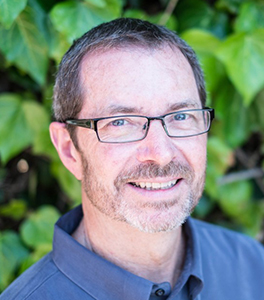OCD Treatment Tip #1: Why Checking Doesn’t Bring Us Certainty

(Part one of a continuing series on OCD treatment from one of Southern California’s OCD experts)
“Frank,” worried about fires and break-ins, checks and recheck the burners on his stove and the locks on his front door before he goes to bed or leaves his house. He may spend up to an hour at each of these activities, getting more and more frustrated and anxious as he tries to make absolutely certain that the gas is off or the doors are locked. Frank has it bad but it can get worse. I still remember “Lily,” a client of mine from 30 years ago who recounted one episode when she was trying to feel certain about having turned off the stove before going to bed. To her horror, she found that the more that she checked the LESS she was certain of what she was doing: “I kept pointing to the burners and saying O-F-F means ‘off” and O-N means ‘on’ and after awhile I couldn’t remember any longer what those letters meant. I just broke down crying, I was so demoralized.” Like Frank, Lily was caught going around and around in the checking loop, flooded with anxiety.
Why doesn’t checking increase the sense of certainty in one’s actions?
It should, right? To understand this we have to carefully look at what occurs when we do our checking. We walk through our front door, put the key into the lock, and turn it. Immediately, we feel, and perhaps hear, the familiar clunk of the bolt as it slides into the locked position. We get a sense impression and this sense impression comes with the MEANING that the door is locked. But then the doubt starts: “What if I wasn’t paying full attention when I did it? I better lock it again to make sure.” And so we go through the motions to unlock it and then relock the door. So now we have a second sense impression stacked upon the first one. The problem is that each time we go through the procedure, we do it a little differently. We might do it a little slower, or with a little more forcefulness, or with a little more concentration, so that each time it’s a little blurrier. The doubt feeds on these little differences between the checks. But it gets worse. With repetitions we start to rub the meaning off of the action that we’re performing. This is akin to repeating a word, say, “pan” 50 times quickly (try it!). If we rapidly say “pan” 50 times, very soon we begin to hear the sound of the word ONLY, as the meaning (that “pan” is the thing that we cook our eggs in) starts to disappear. Soon we only hear that strange sound that we’re making as we say the word over and over. This is why Lily, after repeatedly checking to see if the burners were off, could no long FEEL that they were off – the repetitive checking had rubbed the meaning off of O-F-F, and she was less certain (and so much more anxious!) than before she started checking.
Checking cuts away at one’s confidence in oneself and in one’s certainty about what one feels
We have to get ourselves to risk going with our initial “read” of the situation. It will feel like a risk because of the obsessive doubt that will surround it, but over time if we consistently lock the door ONCE and move on, our trust in ourselves and what we do will be strengthened, and the OCD doubt will begin to subside.
What is the OCD Treatment Takeaway?
One of the most important features of CBT treatment for Obsessive Compulsive Disorder is known as “Response Prevention” where you learn how to systematically eliminate your compulsive checking for the reasons described above. This is why we ask our OCD clients to STOP CHECKING.
If you would like help with your checking or would like to discuss how OCD treatment can be personalized for you, contact us.

Author Dr. Rodney Boone is the Founder and Director of CBT SoCal, has taught as a former member of the faculty in UCLA’s Department of Psychiatry, and practices in Glendale and Torrance, CA.


Persephone de Vito
It was really nice how you said that by consistently locking the door once and moving on, a person’s obsessive doubt will eventually subside, although it can be quite difficult to do at first. I can definitely give that a try, however, I am not certain that I will be successful on my first try. Having OCD is really hard because I know that it’s affecting my family and friends. I want to be able to get over it, so I’m willing to try anything. But before I follow your suggestions, I’ll ask my parents to take me to the professional first for a consultation. Thank you.
Martin Hsia
Resisting the urge to check is absolutely the hardest part of trying to get better, and having the right professional support to coach through it can of course be helpful. I hope you’ve found the right professional to work with.